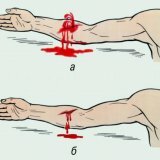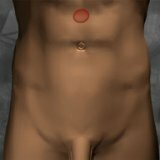Postoperative period, nursing care

The duties of a ward nurse include ensuring the necessary position of the patient in bed( raising the head or foot end of the functional bed, providing a roller under the head), taking care of maintaining the cleanliness of the room, the temperature regime, sterility of the room, correct lighting. It is the nurse who is the first to get out of bed after the operation, and also for his condition during the movement.
After anesthesia.
Postoperative period, nursing after local anesthesia requires special attention of junior medical personnel. Because of the increased sensitivity of some patients to novocaine, weakness, a sharp fall in blood pressure, tachycardia, cyanosis, vomiting may occur. In such cases, it is necessary at the time to inject subcutaneously a solution of caffeine, and intravenously to inject glucose and saline. Usually after 2-4 hours the condition is normalized.
The care of patients after general anesthesia is to put the patient in a warm bed, with his head turned on his side, without a pillow and overlay it with heaters, observe for 4-5 hours, constantly checking breathing, blood pressure, appearance and general condition of the patient. Wake up the patient should not. Immediately after the operation on the wound, a bag of sand or ice should be applied, this measure is required to squeeze small blood vessels, which prevents the accumulation of clots in the wound. In addition, the cold calms the pain and serves as a warning for some complications, since it interferes with the processes of metabolism and therefore the tissues easily transfer the lack of blood circulation.
In some cases, after anesthesia, the patient is vomiting, so drink within 2-3 hours after surgery is not recommended. When it appears, the patient's head needs to be turned on its side and replaced with a tray, after which it is possible to release the oral cavity from the vomit mass, in order to exclude their entry into the respiratory organs. A solution of aminazine or diprazine is injected subcutaneously.
To prevent complications of the respiratory system in the postoperative period, banks should be put on the chest and back. After awakening the patient should be made to make him several deep breaths and exhalations, and also make several movements with his hands. If a cough occurs, the nurse should explain to the patient the need to hold the wound with his hand during a cough. To enhance the depth of breathing, the administration of narcotic and analgesic agents may be prescribed, and camphor oil, which is given to the patient in a warmed state, is prescribed to improve blood circulation.
Thyroid surgery.
Care of patients after operations on the thyroid gland is especially difficult, as this group of patients is especially unstable and not balanced, first of all they should be protected from all kinds of stresses. The most convenient position for them is - half sitting with a slightly inclined forward head. A nurse caring for patients after surgery on the thyroid gland should always keep ready-boiled syringes, camphor, cordiamine, glucose, oxygen balloon, a system for intravenous fluids. To avoid irritation on the patient's skin, it must be periodically lubricated with iodine, petroleum jelly or glue.
Operations on the chest.
Patients after operations on the chest are placed in a special room, which must be equipped with emergency equipment. Until the moment of emergence from anesthesia, the patient should lie without a pillow, after which he is given an elevated position to allow free breathing, expectoration and work of the heart. In addition, the patient is supplied with moistened oxygen. Especially important is the timely suction through the catheter of the accumulating fluid( mucus and phlegm).To avoid bedsores, the patient is recommended frequent changes in position and change of clothes.
Operations on the large intestine.
In the postoperative period of patients after surgery on the large intestine, it is especially important to form the correct diet. The patient is fed strictly according to the prescription of the doctor, in small portions, so as not to overload the intestine and not cause an early perelstalk.
Operations on the rectum.
Care for patients in the postoperative period, especially when surgery was performed on the rectum and anus( hemorrhoids, polyps, cracks), differs in some features. In the anal area of the patient, an oil tampon and a special tube that can drip blood and liquid is injected, so the nurse must prepare the bed in a special way to avoid leakage of liquid onto the mattress. In order to suppress the peristalsis, the patient is given opium tincture 3 times a day, for 5 days, after his cancellation the patient is given a vaseline oil to facilitate the process of defecation. On the third day after the operation, a dressing is done, which is a rather painful procedure, as it is accompanied by a change of the tampon. To reduce pain syndromes, for 30-40 minutes a nurse must enter a solution of promedol and hold a sedentary bath with a solution of potassium permanganate.
Caring for sick personnel, it is necessary to remember about possible postoperative complications. Therefore, nurses should carefully monitor any changes in the patient's condition and point this out to the treating physician, with a view to taking urgent measures aimed at eliminating and preventing the development of further signs of complications.



